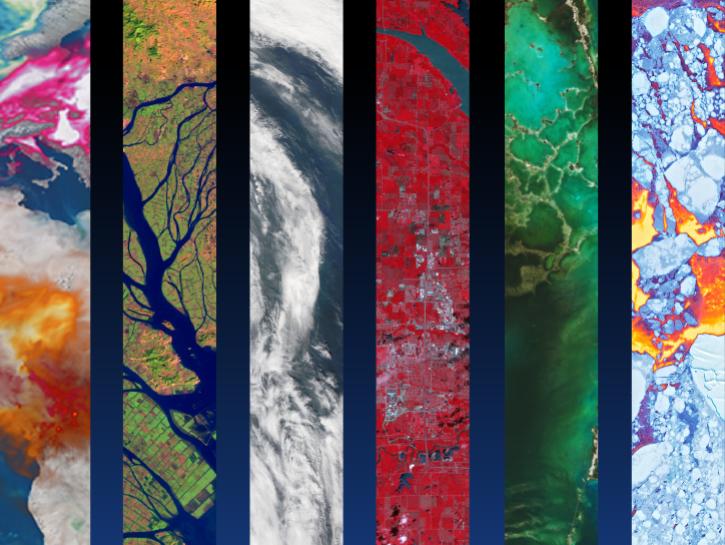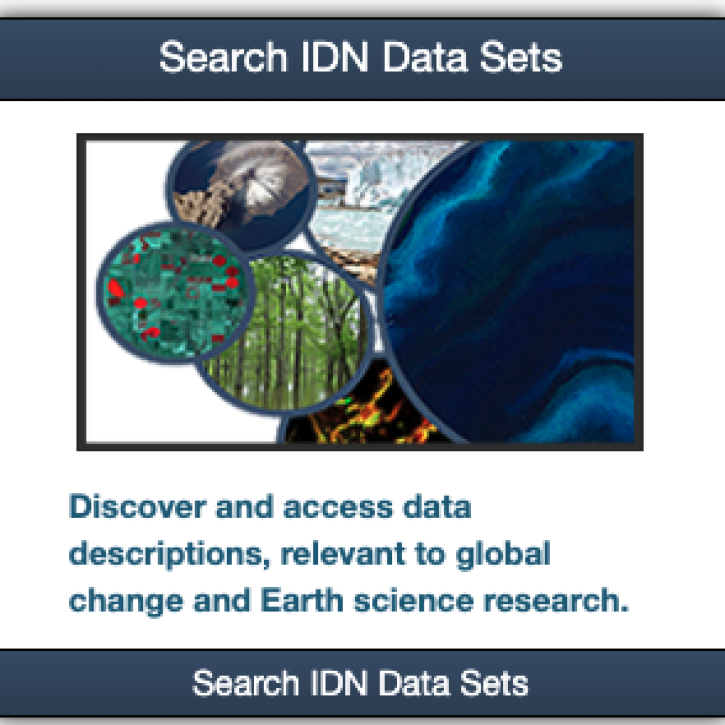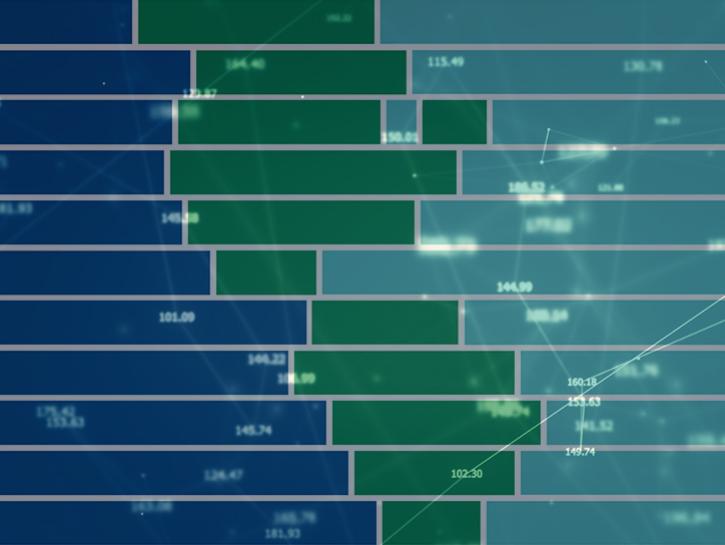GCMD Keywords are organized using a multi-level hierarchical structure. This hierarchical structure provides a framework by which concepts can be classified and related. The Earth Science and Science Services keyword sets use the following hierarchical structure:
Category > Topic > Term > Variable > Detailed Variable
Categories and Topics represent disciplines and high level concepts. Terms and Variables define subject areas and parameters. Detailed Variables are uncontrolled values that can be added by users to more specifically describe data.
All other keyword sets use hierarchies designed for a specific concept. For example, "Instruments" uses Short Name > Long Name. Short name and long name define the name of the instrument used to acquire the data.
Earth Science Keywords Structure
The Earth Science Keywords have a six-level keyword structure with the option for a seventh uncontrolled field. Category and Topic levels define how the keywords are organized and the associated Earth science discipline within the hierarchy. The Term and Variables levels define the subject area, measured variables/parameters, and the hierarchical-type relationship for the subject area.
| Keyword Level | Example |
|---|
| Category | Earth Science |
| Topic | Atmosphere |
| Term | Weather Events |
| Variable Level 1 | Subtropical Cyclones |
| Variable Level 2 | Subtropical Depression |
| Variable Level 3 | Subtropical Depression Track |
| Detailed Variable | (Uncontrolled Keyword) |
Earth Science Services Keywords Structure
The Earth Science Services Keywords have a four-level keyword structure with the option for a fifth uncontrolled field. Category and Topic levels define how the controlled keywords are organized and the associated Earth Science Services discipline associated with the keyword in the hierarchy. The Term and Variable levels define the subject area, the type of software/service being described, and the hierarchical-type relationship for the subject area.
| Keyword Level | Example |
|---|
| Service Category | Earth Science Services |
| Service Topic | Data Analysis and Visualization |
| Service Term | Geographic Information Systems |
| Service Variable | Web-Based Geographic Information Systems |
| Detailed Variable | (Uncontrolled Keyword) |
Data Center/Service Provider Keywords Structure
The Data Center/Service Provider Keywords have a four-level keyword structure and a short name/long name that define the data center, service provider, organization, or institution responsible for distributing the data or developing the service.
| Keyword Level | Example |
|---|
| Level 0 | Government Agencies-U.S. Federal Agencies |
| Level 1 | NASA |
| Level 2 | - |
| Level 3 | - |
| Short Name | LP DAAC |
| Long Name | Land Processes Distributed Active Archive Center |
Project Keyword Structure
The Project Keywords have a short name/long name that define the name of the scientific program, field campaign, or project from which the data were collected.
| Keyword Level | Example |
|---|
| Short Name | ESIP |
| Long Name | Earth Science Information Partners |
Instrument/Sensor Keyword Structure
The Instrument/Sensor Keywords have a four-level keyword structure and a short name/long name that define the name of the instrument used to acquire the data.
| Keyword Level | Example |
|---|
| Category | Earth Remote Sensing Instruments |
| Class | Passive Remote Sensing |
| Type | Spectrometers/Radiometers |
| Sub Type | Imaging Spectrometers/Radiometers |
| Short Name | MODIS |
| Long Name | Moderate-Resolution Imaging Spectroradiometer |
Platform/Source Keyword Structure
The Platform/Source Keywords have a three-level keyword structure a short name/long name that define the name of the platform used to acquire the data.
| Keyword Level | Example |
|---|
| Basis | Space-based Platforms |
| Category | Earth Observation Satellites |
| Sub Category | - |
| Short Name | Aqua |
| Long Name | Earth Observing System, Aqua |
Location Keyword Structure
The Location Keywords have a five-level keyword structure with the option for a sixth uncontrolled field and define the name of a place on Earth, a location within Earth, a vertical location, or a location outside of the Earth.
| Keyword Level | Example |
|---|
| Location Category | Continent |
| Location Type | North America |
| Location Subregion 1 | United States of America |
| Location Subregion 2 | Maryland |
| Location Subregion 3 | Baltimore |
| Detailed Location | (Uncontrolled Keyword) |
Horizontal Data Resolution Keyword Structure
The Horizontal Data Resolution Keywords have a range structure and define the horizontal resolution of the data.
| Keyword Level | Example |
|---|
| Resolution Range | 1 km - < 10 km |
Vertical Data Resolution Keyword Structure
The Vertical Data Resolution Keywords have a range structure and define the vertical resolution of the data.
| Keyword Level | Example |
|---|
| Resolution Range | 1 km - < 10 km |
Temporal Data Resolution Keyword Structure
The Temporal Data Resolution Keywords have a range structure and define the vertical resolution of the data.
| Keyword Level | Example |
|---|
| Resolution Range | 1 minute - < 1 hour |
URL Content Type Keyword Structure
The URL Content Type Keywords have a content type and type/subtype structure and define the type of URL being referenced.
| Keyword Level | Example |
|---|
| URL Content Type | Distribution URL |
| Type | Get Data |
| Sub-Type | Earthdata Search |
Granule Data Formats Keyword Structure
The Granule Data Formats Keywords have a one-level keyword structure and represent the format of the data that is distributed by the data center.
| Keyword Level | Example |
|---|
| Granule_Data_Format | GRIB |
Measurement Names Keyword Structure
The Measurement Names Keywords have a three-level keyword structure and define an observable property, usually geophysical, geo-biophysical, physical, or chemical.
| Keyword Level | Example |
|---|
| Context_Medium | atmosphere |
| Object | air |
| Quantity | pressure_anomaly |
Chronostratigraphic Units Types Keyword Structure
The Chronostratigraphic Keywords have a five-level keyword structure and define the geologic time of the data.
| Keyword Level | Example |
|---|
| Eon | Phanerozoic |
| Era | Cenozoic |
| Period | Neogene |
| Epoch | Miocene |
| Stage | Tortonian |




